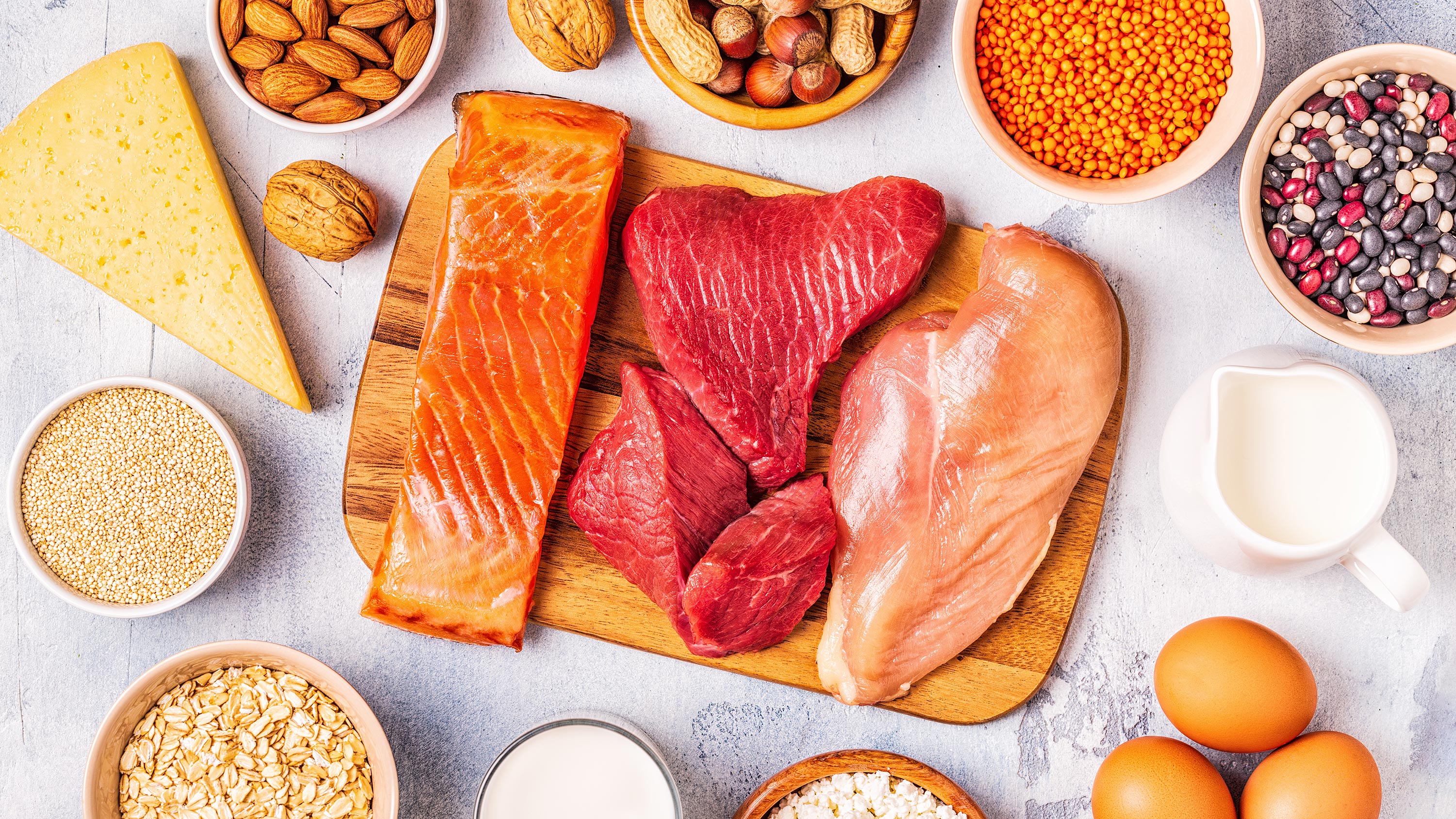Are you eating too much protein? Here’s how to tell…
Whey powder, chicken, tofu... are we eating too much protein? And should we eat less? We cut through the confusion...


Any fitness and food lover knows the importance of a balanced diet - but could we be eating too much protein?
The benefits of protein are widely understood. We need it for muscle repair, healthy hair, brain health... the list goes on. But with the average Brit now eating around 69g a day, according to research by Mintel (women typically require just 45g) - and that figure rising to around 100g in the US - there’s a chance we might be taking the protein hype a little too far.
- Best protein powder for weight loss: kick-start your diet goals
- Best protein powder for women: build muscle and get lean
- How to eat healthily (without depriving yourself)
- Flat tummy foods: 11 things to eat for a trim tum
In fact, the National Diet and Nutrition Survey reckons British men and women eat about 45-55% more protein than they need each day.
How much is too much protein?
Helen Bond, consultant dietitian at Blue Diamond Almonds, reckons we need to practise portion control and opt for healthier protein sources.
“Protein is a crucial part of any balanced diet,” she explains. “Eating high-quality protein within two hours of weight exercising helps our muscles to recover, but there’s confusion over how much we need.”
The average 60kg (13lbs) woman only needs around 45g per day (for reference, a chicken breast is 24g and a large egg is 13g).
“You don’t need to chug back multiple protein shakes and then chomp through steak, eggs and cheese,” Helen says. “Be mindful that some high-protein foods are less healthy than others due to additional saturated fat, fibre, salt content and artificial additives found in many whey-based products.”
Start your week with achievable workout ideas, health tips and wellbeing advice in your inbox.
She adds: “One of the biggest myths is that animal proteins are superior to plant proteins, but there are numerous plant-based foods that pack a significant – and much healthier – punch; nuts, grains and tofu, to name just a few.”
Is too much protein bad for you?
“Various high-protein diets claim that cutting carbs in favour of protein helps you lose weight faster,” says Helen. However, she warns: “Severely limiting your intake of carbs can be detrimental to your health, as the body then burns fat for energy and makes substances called ketones, which can result in tiredness, weakness, mood swings, nausea and constipation.”
How much protein do I need?
The Dietary Reference Intake (DRI) is 0.8 grams of protein per kilogram of body weight, or 0.36 grams per pound. So if you weigh 60kg and have a sedentary lifestyle, you’d require around 48g of protein a day.
However, Scitec Athlete and Physique Coach Mark Coles argues that protein intake should be considered in line with activity levels. The more we exercise, the higher the rate of protein breakdown so, for example, athletes doing resistance training could need twice the RDA of protein.
“As an athlete and a coach, i’ve been on both sides of the fence when it comes to protein intake,” Mark says. “After years of experimentation and research, i ended up with what i think is the perfect amount. I eat 275g a day and weigh 106kg (233lbs).
- Best adjustable dumbbells: convenient weights to use at home
- Best workouts for arms: get toned, muscular triceps and biceps
Symptoms of too much protein
You may be eating too much protein in you suffer from any of the following:
Weight gain: If protein isn’t converted into muscle through exercise, it will be stored in your body as fat.
Bad breath: Those ketones that dietician Helen Bond mentions? They can cause stinky breath. The smell will be reminiscent of nail polish remover.
Dehydration: Kidneys work overtime to remove excess protein as well as nitrogen waste from metabolising protein, so if you urinate too much, you risk getting dehydrated.
Low mood: If you deprive yourself of other food groups, you could become irritable and grouchy. Carbs produce the happy hormone, serotonin, so are particularly important in a balanced diet.
A guide to protein levels
It’s easier than you think to hit your daily protein requirements...
1 large egg = 6g
100g tofu = 8g
100g lentils = 9g
100g Greek yoghurt = 10g
60g protein bar = 23.3g (on average)
200ml Almond Breeze Nutri & Protein = 6g
100 quinoa = 13g
100g nut butter = 25g
100g salmon = 20g
165g chicken = 31g
Lucy is a freelance journalist specializing in health, fitness and lifestyle. She was previously the Health and Fitness Editor across various women's magazines, including Woman&Home, Woman and Woman’s Own as well as Editor of Feel Good You. She has also previously written for titles including Now, Look, Cosmopolitan, GQ, Red and The Sun.
She lives and breathes all things fitness; working out every morning with a mix of running, weights, boxing and long walks. Lucy is a Level 3 personal trainer and teaches classes at various London studios. Plus, she's pre- and post-natal trained and helps new mums get back into fitness after the birth of their baby. Lucy claims that good sleep, plenty of food and a healthy gut (seriously, it's an obsession) are the key to maintaining energy and exercising efficiently. Saying this, she's partial to many classes of champagne and tequila on the rocks whilst out with her friends.
